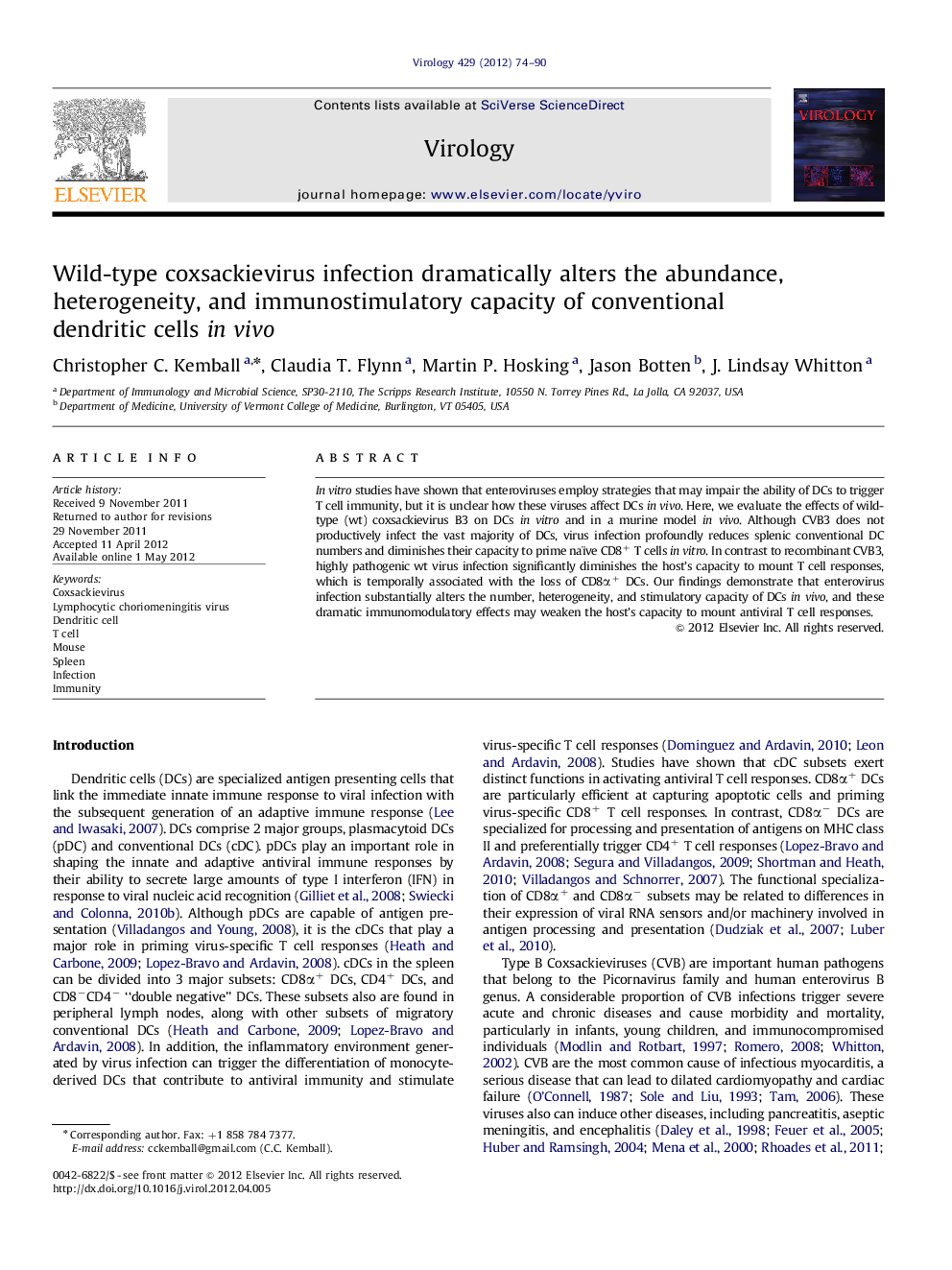| Article ID | Journal | Published Year | Pages | File Type |
|---|---|---|---|---|
| 3424300 | Virology | 2012 | 17 Pages |
In vitro studies have shown that enteroviruses employ strategies that may impair the ability of DCs to trigger T cell immunity, but it is unclear how these viruses affect DCs in vivo. Here, we evaluate the effects of wild-type (wt) coxsackievirus B3 on DCs in vitro and in a murine model in vivo. Although CVB3 does not productively infect the vast majority of DCs, virus infection profoundly reduces splenic conventional DC numbers and diminishes their capacity to prime naïve CD8+ T cells in vitro. In contrast to recombinant CVB3, highly pathogenic wt virus infection significantly diminishes the host's capacity to mount T cell responses, which is temporally associated with the loss of CD8α+ DCs. Our findings demonstrate that enterovirus infection substantially alters the number, heterogeneity, and stimulatory capacity of DCs in vivo, and these dramatic immunomodulatory effects may weaken the host's capacity to mount antiviral T cell responses.
► We use a murine model to evaluate the effects of CVB3 on dendritic cells in vivo. ► Infection profoundly reduces splenic conventional DC numbers. ► Wild-type virus delays expansion of LCMV-specific CD8+ T cells in vitro. ► Wild-type virus diminishes the host's capacity to mount T cell responses in vivo. ► CVB3 substantially alters DC abundance, heterogeneity, and stimulatory capacity.
